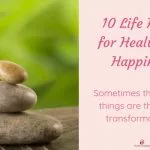All my teenage years and most of my 20s I literally hated food. I saw it as my enemy. I felt out of control as I was either starving myself or binge eating. There was never a middle ground. I tried every diet that existed out there and more – as I was creating my own diets as well.
Eating disorders have the highest mortality rates among psychiatric disorders, according to Anorexia and Bulimia Care. Millions of girls, boys, women and men are suffering with varying levels of an eating disorder, however, most are suffering in silence, feel ashamed and alone.
I definitely did. I never told anyone that I had only one meal a day on some days or got rid of the food that I binged on. The sad thing though, is that most of the time it felt even normal to me, because everyone was doing it. All my friends were on some sort of diets.
These days I see it with my clients. They hide and feel ashamed talking about it – even to their own partner. They compare themselves with others and believe that they are the only one going through this.
So why is it happening and what can we do about it?
With today’s pressure portrayed by the Media and Social Media, many feel not good enough and inadequate the way they look and live their life. When we compare our average and at times boring life to so many Instagram and Facebook posts, it can leave one feel overwhelmed and anxious. Believing Instagram and Facebook, people seem to be always happy, have the “perfect” body, eat only salads and drink green smoothies, and workout six times a week.
We loose touch with reality.
At the same time, when we are constantly bombarded with messages that we need to change the way we are, that is only going to make us feel like we are missing out and need to jump on the wagon to join the crowd. There is no one day, without an add why we should lose weight, how the latest shake is going to make you feel amazing and healthy and why we need a moisturizer to stop developing wrinkles.
These messages are confusing and overwhelming. They can lead to eating disorders, such as binge eating, orthorexia, bulimia, etc.
If you are experiencing a distorted relationship with food and your body, please know you are not alone. Here are five things you can do to heal your relationship with food and your body.
1. Stop Dieting and Restricting (and enjoy your Food)
Look at your beliefs and thoughts around food. Do you believe that some foods are good and others are bad? If you restrict the “bad” foods and end up bingeing on them, this could be the first indication that you don’t have a healthy relationship with food.
You see, the more we restrict foods we love, the more appealing they become. We can resist only so long, until our willpower runs out of steam and we end up overeating like we will never get any food again.
Start adding healthier versions of the foods you love into your diet. When we stop restricting, we can break the diet cycle and start healing our relationship with food.
2. Eat all your meal.
Chances are, when you skip a meal, you get way too hungry and end up eating anything and everything that comes your way. It is often followed by strong feelings of guilt, shame and punishment with excessive exercise regimes and food restrictions. If this sounds familiar to you, then make sure you have three full meals a day and add snacks in between. Don’t let yourself get too hungry. I did a video on How much to eat and when to eat where I am explaining how to balance your meals.
3. Check your Negative Self-Talk
Due to social conditioning and the social pressure, many create high expectations of themselves and the underlying belief that they are not good enough. The negative self-talk feeling inadequate is often a driver for wanting to change our body through excessive exercise regime, controlling our diet, even avoiding social situations when there is food involved. The more we are putting ourselves down, the more likely we are going to control our feelings with food. Some use food for comfort or to numb their heavy emotions and others restrict food to gain a sense of reward and achievement by reaching their set goals.
Mindfulness helps us to create awareness and understand our underlying beliefs. By observing our thoughts and emotions we can accept ourselves and at the same time make more informed decisions about what truly matters to us.
4. Feel your feelings. Feeling is healing.
Many people judge their emotions as bad or good (e.g. happiness is good and sadness is bad). As humans we will always try to avoid pain and seek pleasure. So, when we describe a feeling as bad, we will want to avoid or numb it. In moments when we feel not good enough and experience anxiety or sadness, we will want to eliminate this pain that is created by the “negative” feeling. Different people use different coping mechanisms to numb their emotions such as food, alcohol, drugs, phone, social media or pornography. It allows us to escape for a moment.
It might feel uncomfortable at first, but feeling our feelings and seeing them as what they are can be very powerful. They are just feelings, they are not our reality and don’t define and reflect who we are. Acknowledge how you feel and make the decision to act based on how you want to live your life.
5. Talk about it.
So many suffer in silence and feel like they are the only ones who are feeling insecure about themselves. As soon as we open up and speak about it, we realize how many other people feel very similar to us. They too just felt ashamed and fearful to be judged. Choose a person you trust and know they will listen without judgment and share with them how you feel and what you are going through. Speaking to others can help us to get perspective and share the load.
If you know someone who is suffering with food and body image issues, please feel free to share this article with them. They might find it helpful.
For more information and more support, I am available for a FREE Food Freedom Breakthrough Call. You can book your call HERE.



